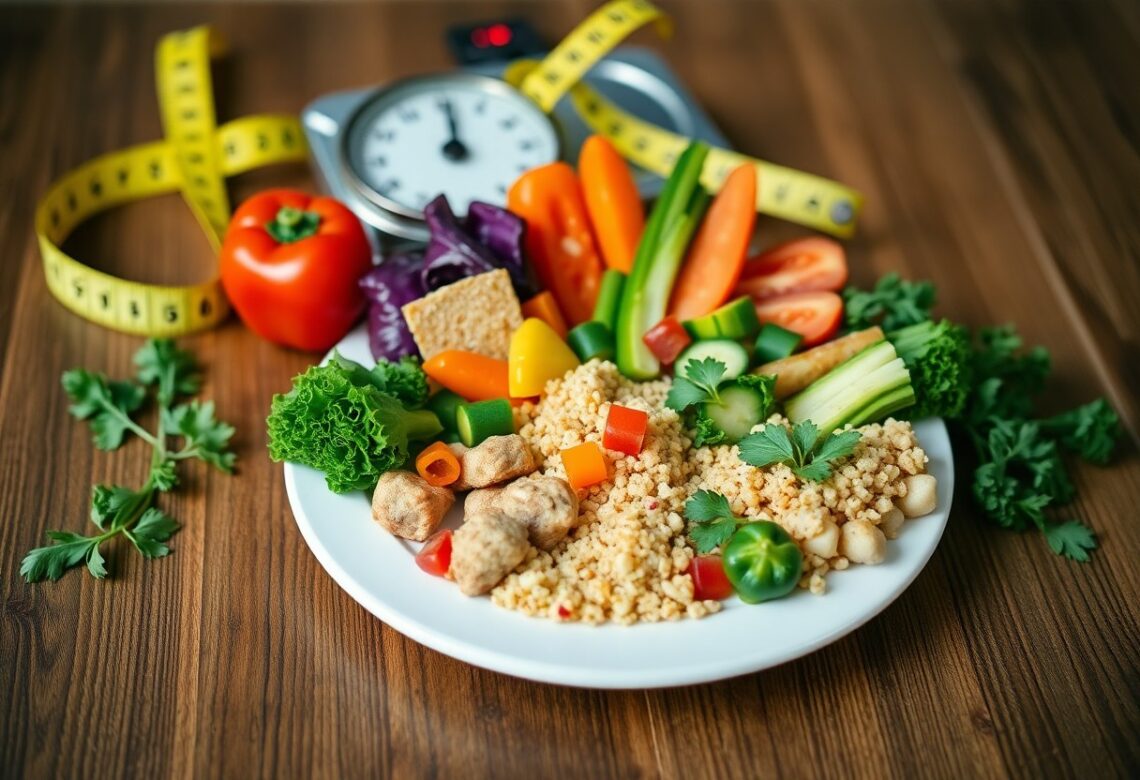Loss of weight can be challenging, especially when following a gluten-free diet. However, the right strategies can help you achieve your goals while enjoying delicious, nutritious foods. In this blog post, you will discover practical tips tailored specifically for gluten-free dieters, ensuring you can shed those extra pounds effectively without feeling deprived. From understanding gluten-free substitutes to balancing your meals, these insights will guide you on your journey to a healthier lifestyle.
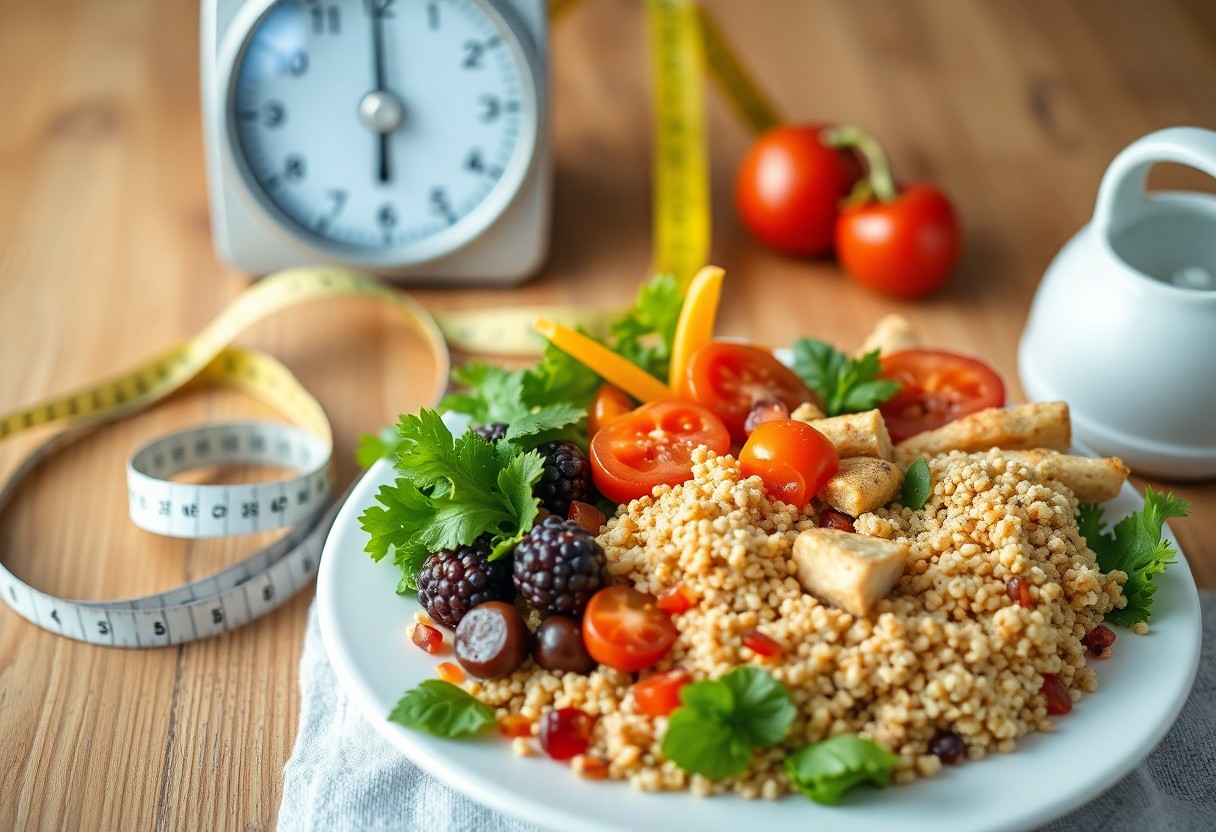
Key Takeaways:
- Whole Foods: Focus on incorporating more whole, unprocessed foods like fruits, vegetables, lean proteins, and healthy fats into your diet.
- Portion Control: Pay attention to portion sizes to ensure you are not overeating, even with gluten-free options.
- Mindful Eating: Practice mindful eating by savoring each bite, which can help you recognize when you are full.
- Label Reading: Be vigilant about reading labels to avoid hidden gluten and make healthier choices among gluten-free products.
- Meal Prep: Prepare meals in advance to have easy access to healthy options, preventing the temptation of less nutritious convenience foods.
- Diverse Diet: Include a variety of gluten-free grains like quinoa, brown rice, and buckwheat to ensure you get a range of nutrients.
- Professional Guidance: Consider working with a nutritionist or dietitian who specializes in gluten-free diets to tailor a weight loss plan that suits your needs.
Understanding Gluten-Free Diets
A gluten-free diet is imperative for individuals with celiac disease or gluten sensitivity. This dietary plan eliminates gluten, a protein found in wheat, barley, and rye, which can trigger adverse reactions in sensitive individuals. By following a gluten-free diet, you focus on consuming whole foods such as fruits, vegetables, lean proteins, and gluten-free grains, promoting healthier eating habits while avoiding harmful substances that could impact your health.
What is a Gluten-Free Diet?
What you need to know about a gluten-free diet is that it strictly avoids any foods containing gluten. This includes obvious sources like bread and pasta, but gluten can also be hidden in sauces, dressings, and processed foods. By focusing on naturally gluten-free options, you can create nutritious meals that support your weight loss goals while safeguarding your health.
Common Misconceptions
For many, the gluten-free diet is surrounded by confusion and myths. Some believe it’s a fad diet for weight loss, while others think it’s automatically healthier. It’s imperative to clarify these misconceptions to make informed choices that benefit your health.
A common misconception is that all gluten-free foods are healthy options. In reality, many gluten-free products can be processed and high in sugars or unhealthy fats, similar to their gluten-containing counterparts. Additionally, some people may assume that following a gluten-free diet automatically leads to weight loss. However, successful weight management comes down to balanced nutrition and portion control, factors that are critical regardless of whether gluten is part of your diet. Being informed can help you navigate a gluten-free lifestyle effectively and support your weight loss journey.
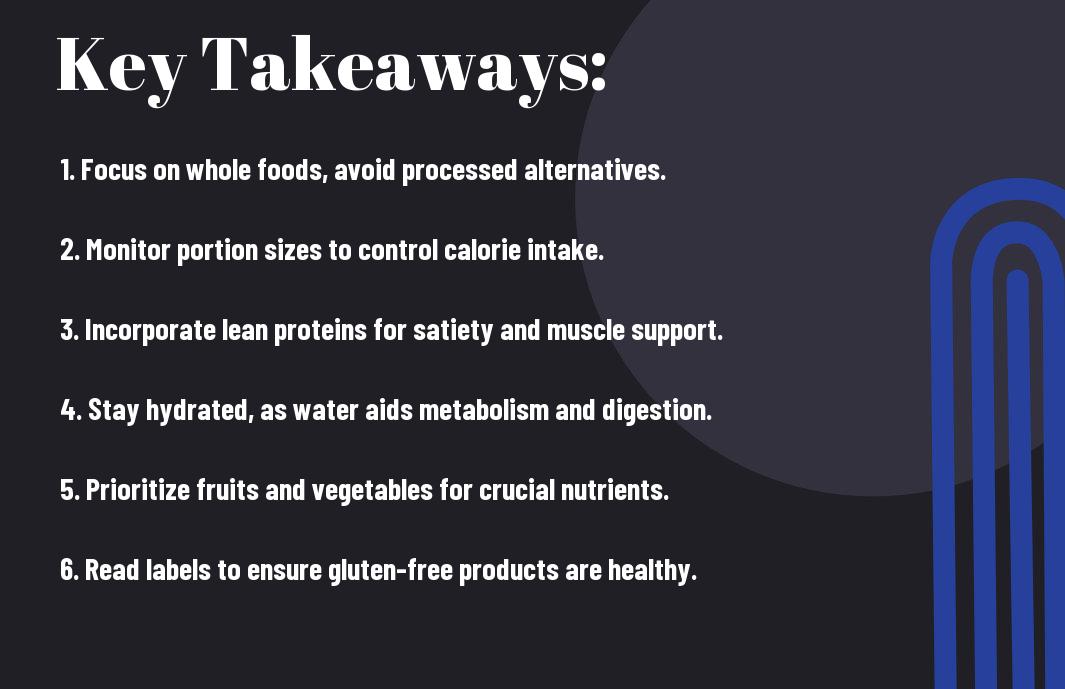
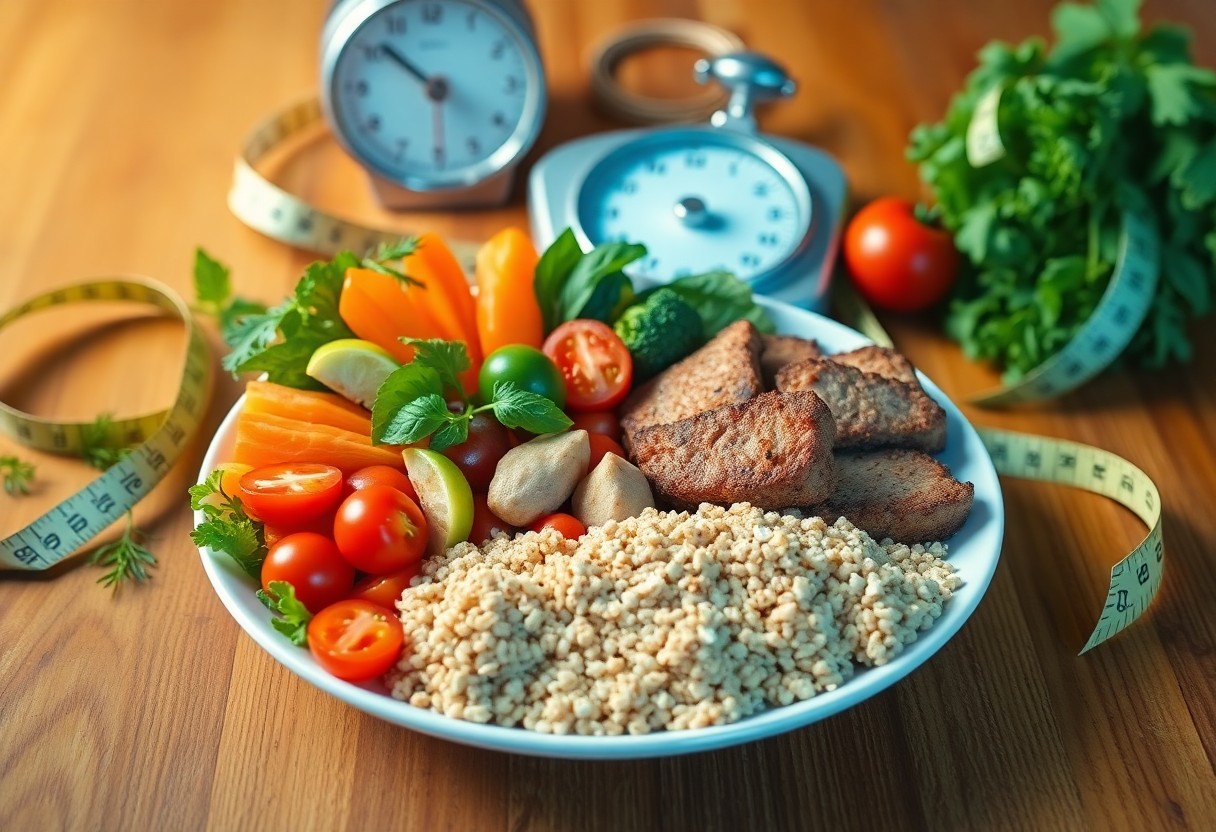
Nutritional Guidelines for Weight Loss
Clearly, following a gluten-free diet doesn’t mean sacrificing nutrition for weight loss. Focus on whole, unprocessed foods, and consider incorporating lean proteins, fruits, and vegetables to ensure a balanced intake of crucial nutrients. For more detailed guidelines, check out The Gluten-Free Diet: A Beginner’s Guide with Meal Plan for meal ideas and tips tailored to gluten-free living.
Essential Nutrients for Gluten-Free Dieters
Against common misconceptions, a gluten-free diet can be nutritionally adequate if you include a variety of foods. Ensure you’re getting enough fiber, vitamins, and minerals by choosing gluten-free whole grains, legumes, and a diverse array of colorful fruits and vegetables.
Caloric Intake and Portion Control
Behind every successful weight loss plan is an understanding of caloric intake and portion control. Pay attention to serving sizes and opt for nutrient-dense foods that keep you satiated while allowing you to maintain a calorie deficit.
In fact, managing your caloric intake starts with knowing how much your body needs daily based on your activity level and weight loss goals. Utilizing measuring tools or food scales can help you serve appropriate portions, which aids in preventing overeating and encourages mindful eating habits. You’ll also want to track your food intake to identify patterns and areas for improvement, ultimately leading you towards your weight loss objectives more effectively.
Meal Planning and Preparation
Many individuals on a gluten-free diet find that thoughtful meal planning and preparation play a vital role in achieving their weight loss goals. By dedicating time each week to plan your meals, you can ensure that you are selecting nutrient-dense, gluten-free ingredients that align with your dietary needs. Preparing meals in advance not only saves time during busy weeks but also helps you avoid impulse eating or reaching for unhealthy snacks when hunger strikes.
Creating Balanced Meals
One effective approach to crafting balanced meals is to utilize a variety of foods that include healthy proteins, wholesome carbohydrates, and plenty of colorful vegetables. When planning your meals, aim to include a lean source of protein, such as grilled chicken or legumes, alongside gluten-free grains like quinoa or brown rice. Fill half your plate with vegetables to maximize vitamins, minerals, and fiber, promoting satiety and overall health.
Healthy Gluten-Free Snacks
Above all, snacking can be an excellent way to maintain energy levels while sticking to your health goals. By choosing healthy gluten-free snacks, you can curb cravings and avoid unhealthy options that can derail your progress. Look for snacks that combine fiber, protein, and healthy fats to keep you satisfied, such as nuts, seedy energy bars, or fresh fruit paired with nut butter.
Snacks play an vital role in your daily diet, especially when they are nutritious and satisfying. Opt for whole foods like raw vegetables with hummus, yogurt topped with berries, or air-popped popcorn tossed with a sprinkle of nutritional yeast. Preparing snack portions ahead of time can help you stay on track, making it easier to resist gluten-filled temptations and maintain your weight loss journey effectively.
Incorporating Physical Activity
After adopting a gluten-free diet, it’s vital to incorporate physical activity to support your weight loss journey. Engaging in regular exercise not only helps burn calories but also boosts your metabolism and enhances overall well-being. Aim to include a mix of cardio, strength training, and flexibility exercises in your routine to maximize results and keep your workouts enjoyable.
Exercise Routines for Weight Loss
After determining your fitness level, consider creating an exercise routine that suits your lifestyle and preferences. Incorporate a combination of aerobic workouts such as running, swimming, or cycling, alongside strength training exercises like weightlifting or bodyweight workouts. Aim for at least 150 minutes of moderate-intensity exercise each week to see significant progress in your weight loss efforts.
Staying Active on a Gluten-Free Diet
Diet and exercise go hand in hand for effective weight management. Staying active on a gluten-free diet includes finding fun ways to move throughout the day, from walking or hiking to joining fitness classes or sports leagues. Incorporate more physical activity into your routine by choosing stairs over elevators, walking during your lunch break, or engaging in family activities that encourage movement.
Loss of motivation can be common when you’re trying to stay active on a gluten-free diet. To combat this, set specific, achievable goals and track your progress. Joining a local fitness group or participating in online health communities can provide social support and encouragement. Explore new gluten-free meal options that fuel your workouts, ensuring you have the energy to stay consistent in your physical activity efforts.
Overcoming Challenges
Unlike many dieters, gluten-free individuals face unique challenges when trying to lose weight. Sticking to your diet can fluctuate due to cross-contamination or missing gluten-free options. With careful planning and commitment, you can navigate these hurdles. Focus on whole foods, meal prepping, and seeking guidance from professionals to help you remain on track while maintaining your gluten-free lifestyle.
Social Situations and Dining Out
Dining out can present significant challenges for gluten-free dieters, as many restaurants struggle to provide safe options. Always check menus beforehand and don’t hesitate to ask staff about gluten-free options and preparation methods. When dining with friends or family, propose restaurants that are accommodating to your dietary needs, ensuring you enjoy social gatherings without compromising your health goals.
Dealing with Cravings and Emotional Eating
After a long day, you may find yourself grappling with cravings or emotional eating. Recognizing the triggers behind your cravings is key. Use alternative coping strategies, such as engaging in a hobby or developing mindfulness techniques, to help manage those moments. Replacing gluten-laden comfort foods with satisfying, healthy snacks will aid in maintaining your commitment to a gluten-free lifestyle.
Also, understanding your emotional relationship with food can open doors to healthier habits. Keeping a food journal is a great way to reflect on your eating patterns and identify emotional cues linked to your cravings. By staying mindful and proactive, you can shift your focus from immediate satisfaction to long-term health, all while breathing easier as you navigate your gluten-free journey.
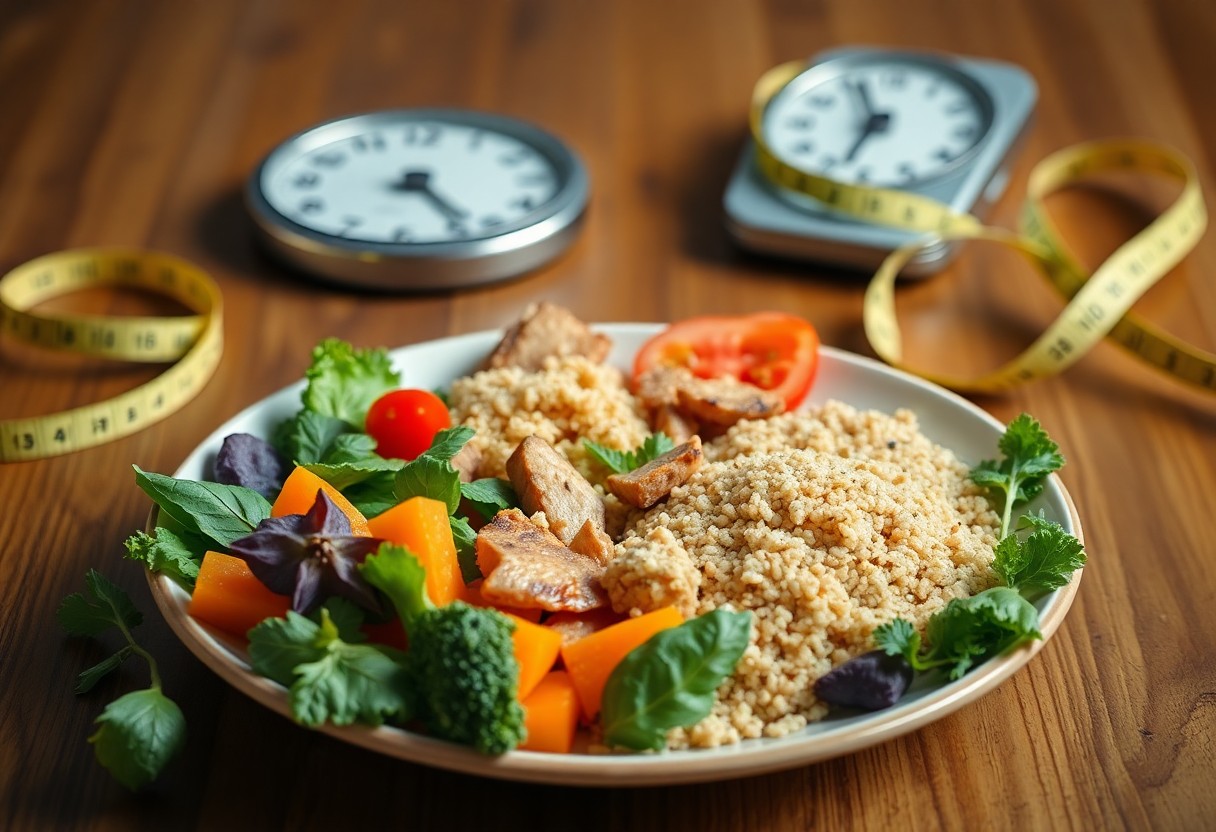
Success Stories and Motivation
All across the world, individuals have transformed their lives by committing to a gluten-free diet. Their success stories serve as powerful motivation for those facing similar challenges. Dive into inspiring journeys where weight loss and improved health are direct results of a shift to gluten-free eating. For detailed insights, check out this resource on Weight Loss After Starting a Gluten Free Diet.
Real-Life Transformations
To achieve lasting change, many people have incorporated gluten-free diets into their lifestyles, leading to remarkable transformations. Whether it’s shedding pounds or improving energy levels, hearing these success stories can ignite your motivation.
Tips for Staying Motivated
After committing to a gluten-free diet, staying motivated is key to achieving your weight loss goals. Here are some effective strategies you can use:
- Set realistic goals
- Track your progress regularly
- Join a supportive community
- Celebrate small victories
Recognizing your achievements, no matter how minor, can help keep your spirits high.
Real-life success stories can significantly boost your motivation. Here are additional strategies to keep you on track:
- Establish a routine
- Experiment with new gluten-free recipes
- Attend workshops or webinars
- Connect with others on a similar journey
Recognizing your dedication and progress will help fuel your long-term commitment.
Summing up
Presently, navigating a gluten-free diet while aiming for weight loss can be both effective and manageable. Focus on incorporating whole foods like fruits, vegetables, lean proteins, and gluten-free grains into your meals while avoiding processed gluten-free products that may be high in sugar and calories. Regular physical activity is equally vital, as it complements your dietary efforts. By planning your meals and staying mindful of portion sizes, you can maintain a healthy lifestyle that supports your weight loss goals without sacrificing taste or variety in your diet.
FAQ
Q: What are some effective weight loss tips for those following a gluten-free diet?
A: Effective weight loss tips for gluten-free dieters include focusing on whole, unprocessed foods such as fruits, vegetables, lean proteins, and gluten-free whole grains like quinoa and brown rice. Understanding portion sizes and practicing mindful eating can help maintain a healthy caloric intake. Additionally, engaging in regular exercise and staying hydrated are vital components of any weight loss plan.
Q: Can I lose weight on a gluten-free diet without restricting calories?
A: Yes, it is possible to lose weight on a gluten-free diet without strictly counting calories. Focus on nutrient-dense foods that promote fullness and avoid highly processed gluten-free snacks, which can be calorie-dense and lower in nutritional value. Listening to your body’s hunger and fullness cues can lead to natural calorie reduction while still promoting weight loss.
Q: What are some common misconceptions about gluten-free diets and weight loss?
A: One common misconception is that all gluten-free foods are healthy and can aid in weight loss. Many gluten-free products are high in sugar and unhealthy fats, making them less beneficial. Another myth is that simply eliminating gluten will result in weight loss. Weight loss depends on overall dietary choices and lifestyle, not just eliminating gluten.
Q: How can gluten-free dieters avoid processed gluten-free foods that may hinder weight loss?
A: To avoid processed gluten-free foods, focus on shopping the perimeter of the grocery store, where fresh produce, meats, and dairy are typically located. Reading labels is important to identify hidden ingredients that may contribute to weight gain. Preparing meals at home with fresh, whole ingredients is also an effective strategy to control what goes into your meals.
Q: Are there specific gluten-free foods that support weight loss?
A: Yes, certain gluten-free foods are particularly good for weight loss, such as leafy greens, berries, avocados, and lean proteins like chicken and fish. Gluten-free legumes, nuts, and seeds are also excellent sources of protein and healthy fats, which can help keep you satisfied. Incorporating these foods into a balanced diet can promote effective weight management.
Q: How can I stay motivated on my weight loss journey while following a gluten-free diet?
A: Staying motivated can be achieved by setting realistic and achievable goals, tracking progress, and celebrating small milestones. Joining a support group or community for gluten-free dieters can provide encouragement and accountability. Experimenting with new gluten-free recipes and foods can also add excitement and variety to your meals, keeping you engaged in your weight loss journey.
Q: What role does exercise play in weight loss for gluten-free dieters?
A: Exercise plays an important role in the weight loss process for someone on a gluten-free diet, just as it does for anyone else. Combining cardiovascular exercises with strength training can enhance metabolism and support muscle retention while losing weight. Regular physical activity also benefits overall health, mood, and energy levels, making it easier to stick to a healthy diet plan.
